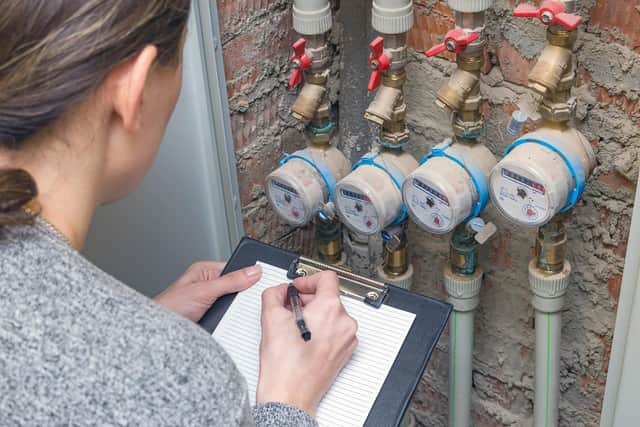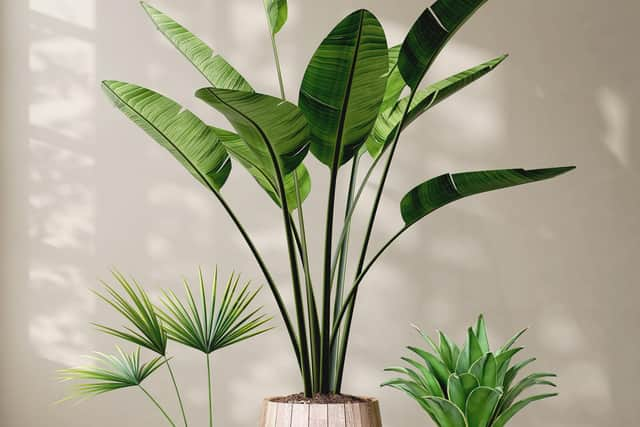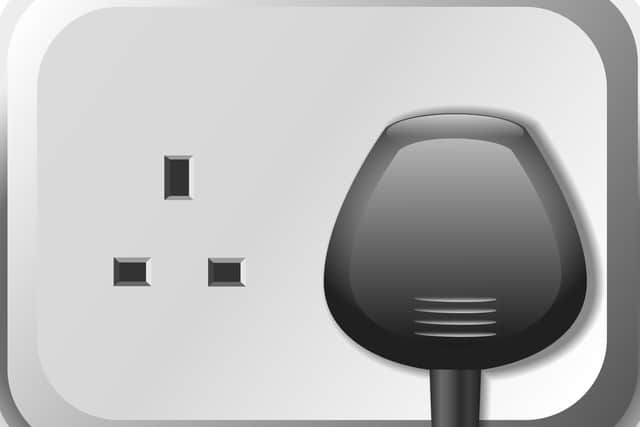Water bill rise – how to stop money going down drain


They’re expected to increase by around £31 a year which is around a 7.5 per cent rise. That’s the biggest price hike for 20 years so it doesn’t matter whether you’re a single person household or a sizeable family, saving water will save energy, habitat and mean less waste is being pumped into waterways around the country.
There are tonnes of simple ways to use less – just a bit of thought goes a long way. Firstly, how much water do you put in your kettle for tea and coffee? Only fill the kettle with what you need to reduce water use and also use less energy as you’re only boiling what you need for your cuppa.
Advertisement
Hide AdAdvertisement
Hide AdSecondly, try taking a shorter shower. A lot of water companies have egg timers they can send you that stick onto the shower wall and time for four minutes so ask for one or set your timer on your phone – just make sure you don’t take it into the shower with you.


If you don’t have one already, get a water meter. Water use is priced on the number of rooms you have so if you’re one person in a big house you’re likely paying more than you should be.
Not to mention the fact if you don’t have a meter you can’t see the real price of what you’re using and that in itself is an incentive to use less.
Next make sure you use all the water you pour, no point boiling your veggies then chucking the water and making gravy with tap water, if you can reuse any water you pour, do it.
Advertisement
Hide AdAdvertisement
Hide AdNext, if you’re guilty of leaving the tap running when you brush your teeth, make sure you turn it off.


Only use your dishwasher and washing machine when they’re full – they use the same amount of water regardless of load so a lot of waste can happen when they’re used inefficiently.
Think about getting a water butte for the garden and use a watering can instead of a hose, left running they can use between 500 and 1,000 litres of water an hour.
If you’re changing your toilet any time soon, get a dual flush one so you’re not using a lot of water to flush away a wee. If you’re washing veg or fruit before cooking or eating, fill a bowl rather than rinse everything under a running tap.
Advertisement
Hide AdAdvertisement
Hide AdFinally, make sure you don’t have any leaks. It sounds straightforward but it’s always worth making sure you’re not wasting water without realising it. A dripping tap can use 90 litres of water a day.


While these tips will all help you save water and money, you’ll also be helping out natural habitats in the UK too – plenty of our bird species rely on wetland habitats that are under threat from climate change already.
Just last month Hertfordshire had just two percent of the expected rainfall for the month, which contributed to the driest February the Met Office has recorded for 30 years.
So whichever way you cut it, using less water is good for both your wallet and the environment.
Save energy, unplug appliances and go green
Advertisement
Hide AdAdvertisement
Hide AdThis month is National bed month. Sleep and our bedrooms and night-time routines probably aren’t the first thing you think of when it comes to the environment and carbon footprints and climate change but there are some very simple choices you can make when it comes to that time of day that can make a world of difference.
Firstly, when you go to bed at night, as well as unplugging ourselves to give ourselves a well-earned rest, why do you not think about unplugging everything else.
Even when you put appliances on low power modes your sockets are still using electricity unless those appliances are turned off completely so why not start with turning every appliance off at the socket?
Also, why not think about switching off the lights in the house too?
Advertisement
Hide AdAdvertisement
Hide AdRemember that bright lights make our bodies think it’s daytime so rather than using overhead lights, maybe try lighting some candles (if it’s safe to do so) or switch to a single low light lamp to help your body start adjusting to night time, and in this way you’ll use less electricity and get your body ready for rest mode too.
The next thing to do it to have a think about the products you use and where those products are from – bamboo is sustainable so if you use a manual toothbrush, rather than a plastic one, why not switch to bamboo?
If you want to do even more, forgo your plastic tubes toothpaste for a toothpaste block.
Have you ever thought about your bed sheets?
Are they polyester?
Bamboo and cotton are both sustainable and more environmentally friendly options.
Advertisement
Hide AdAdvertisement
Hide AdIf your heating has been staying on overnight, ask yourself if you really need it to?
The optimum bedroom temperature is around 18 degrees or lower, we need to lower our body temperature to sleep which is why it’s always easier to fall asleep in a cold room more than a warm one so if you don’t need your heating on, set it to a timer to come on before you wake up.
If you’re a fan of a long soak before bed, switch it for a shower – that might be easier said than done if a bath relaxes you but try some scented products like chamomile and lavender for the same relaxing effect as a bath.
Heavier foods like meat take our bodies longer to digest, switching meat for a plant-based dinner won’t only do the planet and your wallet some good but it could also improve your shut eye.
Advertisement
Hide AdAdvertisement
Hide AdWe sleep for roughly a third of our lives if we get around 8 hours a night, with National bed month upon us it’s definitely an opportunity to see if we can maximise the quality of our sleep and help the planet while we slumber too.